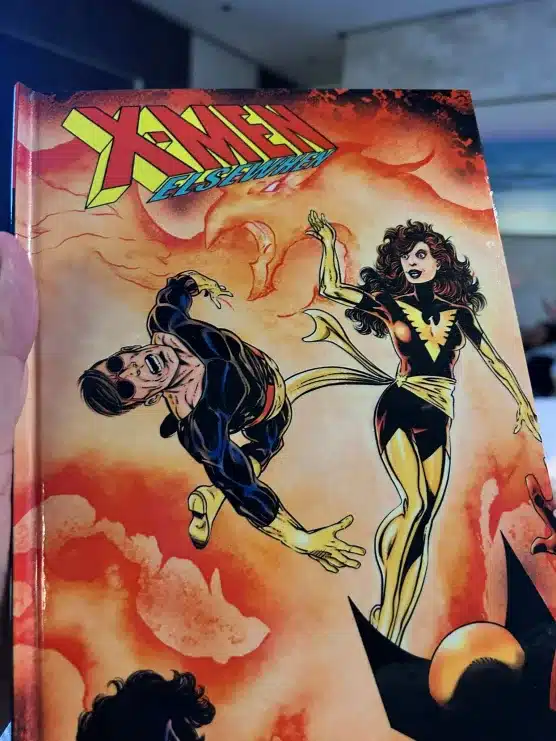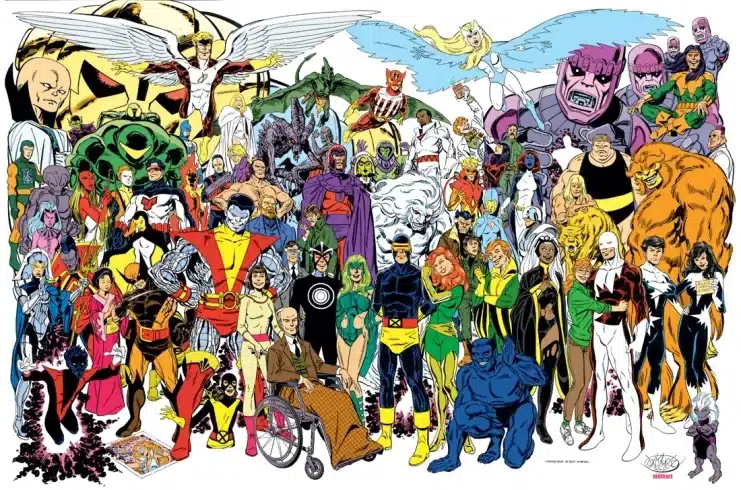
John Byrne, the author of several important comic book arcs, has launched an updated version of the series that focuses on the mutants in over 30 issues.
A titan in the world of comics, John Byrne is known for reviving legendary franchises such as “X-Men” and “Fantastic Four.” His narrative and visual style are fundamental to defining the modern era of comics. Byrne is known for his ability to blend classic and contemporary elements to create stories that resonate with longtime fans and new readers alike. In particular, his work on “X-Men” is praised for introducing emotional depth and complexity to the characters, which left an indelible mark on the superhero genre.
But in an unexpected twist that’s shaking the very foundations of the comics world, the legendary John Byrne, best known for his work on the “X-Men,” has sparked an art revolution. Selflessly, Byrne is showing nearly 30 issues of “X-Men,” giving away one page a day for free in an unprecedented initiative. This act of generosity sparked a backlash within the industry, challenging the traditional conventions of the comics market.

Byrne’s Model: Systematic Change
Rob Liefeld, another famous name in the cartoon world, tweeted his appreciation for the initiative. Liefeld, best known for his work on Deadpool, is excited about this approach. “Someone collected them all and sent them out as trade paperbacks,” he tweeted, reflecting his admiration for Byrne’s creative nature.
This model, which departs from conventional monetization structures, suggests a new path for comic artists. Mark Millar, who works on the likes of “Kick-Ass” and “Kingsman,” also weighed in on the conversation. Millar said on the social network, “This is amazing because if the publication does not generate income, everything is legal.” In addition, Byrne highlighted the possibility of selling the first pages in “X-Men” at an unusual price, hinting at the economic potential of this approach.


The impact on the industry
This model is not only an alternative type of distribution, but also raises questions about the future of sequential arts. Could this be the beginning of a new era of artists sharing their work freely, challenging the commercial status quo? Millar also added an interesting observation to the conversation, citing unconfirmed rumors about Spider-Man illustrator Steve Ditko drawing for his own amusement.
Byrne’s act opens up a debate about the value of art in the digital age. By making his creations available free of charge, Byrne invites us to reflect not only on his art, but on the importance of accessibility in the world of comics. His selfless activism is a call to rethink how art is distributed and shared in our society.


A legitimate and unexpected model for comics
What Byrne did could be the precursor to a significant change in the comedy industry. This selfless act, a blend of generosity and passion, may inspire other artists to follow suit. In a world where digital content is ubiquitous, this approach can be a breath of fresh air, offering new ways to connect with audiences.
Undoubtedly, Byrne’s inspiration and Liefeld and Millar’s responses struck a chord in the hearts of comedy fans and professionals alike. This event raises not only the generosity of the established artist, but also questions about the future of serial art in a digitalized world. Could this be the beginning of a new art that is free and accessible to all? Only time will tell. We’ll leave the link here so you can find the current 32 numbers on the forum he shared.